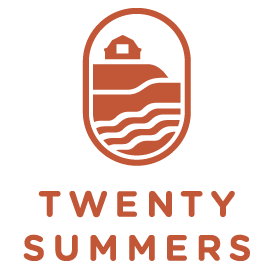black lives matter
These are difficult times. In the midst of a global pandemic, we have witnessed the murder of another Black man, in broad daylight, at the hands of civic employees paid to serve and protect. Across the nation and beyond our borders, people of all backgrounds are putting their lives at risk to gather and demand an end to police brutality and systemic racism. Twenty Summers stands in unequivocal solidarity with all those fighting for basic rights and human dignity. Black lives matter. That such a statement even needs to be made should tell us all how far we still have to go.
This past weekend saw the largest protests in the United States in nearly fifty years. As many have pointed out this Pride month, the Stonewall Riots were also a response to police aggression; the fight for gay rights — which is personally important to so many in Provincetown — has frequently been led by Black and brown LGBTQIA+ activists. We are grateful for this acknowledgment, and for the surge in solidarity we have witnessed from other marginalized groups.
We are taking this time to listen to Black artists, activists, and cultural figures. We hear, and we understand, that it is not enough to call out violence and discrimination in the police force or in other groups or industries; we understand that we are being called on to examine how systemic racism roots itself in our own industry, within our own organizations. Though calls for increased diversity have resounded over the last decade in the arts and nonprofit sectors, too often the result has not included leadership or paid positions for Black people in particular. Why, we have been asking ourselves, have recent efforts toward diversity more frequently amplified other marginalized voices above Black voices? What does it mean for white and NBPOC minority groups to stand in solidarity with Black people still having to fight for and demand equity and justice today? What responsibility do arts and culture organizations have to upend systemic injustices within their networks — our own networks — and how do we assure that our work emphasizes Black lives, interests, artistry, and storytelling?
No single organization can answer these questions sufficiently, but Twenty Summers has to face them as well. We call on other arts organizations to join us in examining our roles and responsibilities. Though we believe allies cannot speak for Black people, we think it’s worth sharing some suggestions we have heard: hiring Black diversity, equity, and inclusion consultants for strategic planning and organizational growth; inviting more Black leaders onto our boards; creating advisory councils and other leadership positions while assuring Black inclusivity; fostering safe spaces for Black artists and cultural figures; allocating funds toward honoraria and stipends for Black artists and cultural figures; partnering with Black-led organizations; hiring Black staff, contractors, and paid interns; and using our physical and digital platforms to promote Black arts and culture.
These are some of the things that are needed now, and have been needed for quite a long time. We cannot let another moment pass us by. The arts world is being shown once again that it is our responsibility to intentionally create spaces that counteract existing racial disparities, and that more Black leadership is required in order to secure lasting change.
Not all of the work that needs to be done will be public, but true solidarity does not require recognition or applause. The people we need to honor are Amadou Diallo, Sean Bell, Oscar Grant, Trayvon Martin, Rekia Boyd, Eric Garner, Mike Brown, Tamir Rice, Walter Scott, Freddie Gray, Sam DuBose, Sandra Bland, Philando Castile, Alton Sterling, Korryn Gaines, Terrance Crutcher, Botham Jean, Atiatana Jefferson, Ahmaud Arbery, Breonna Taylor, George Floyd, Tony McDade, and far, far too many others. Let us fervently and painstakingly do all we can to create the world they deserved, a world in which Black lives are respected and valued by all.
If you are looking for places to donate, please consider Equal Justice Initiative, Black Lives Matter Global Network, and the NAACP Legal Defense & Education Fund.
